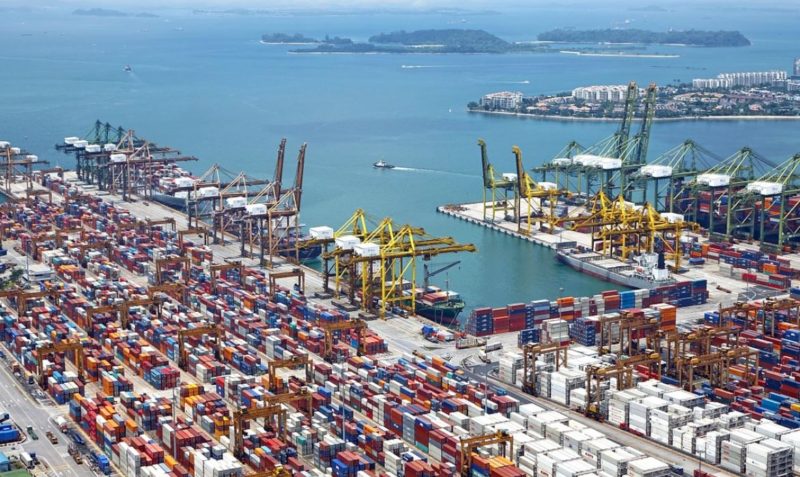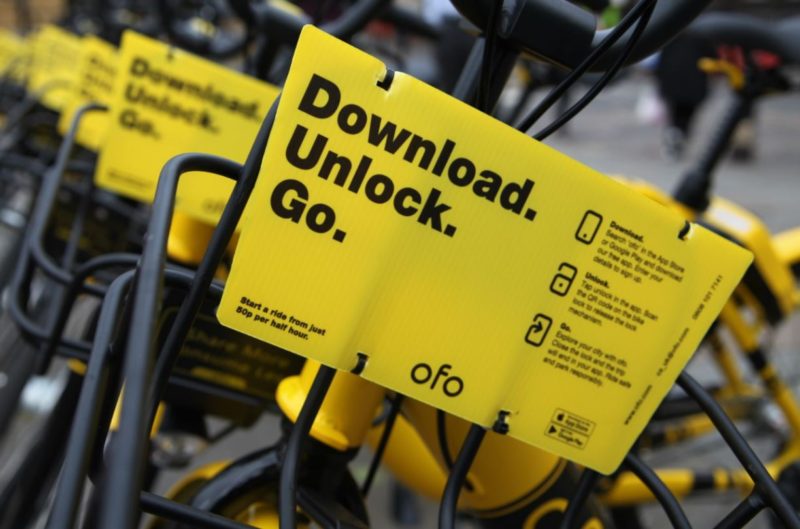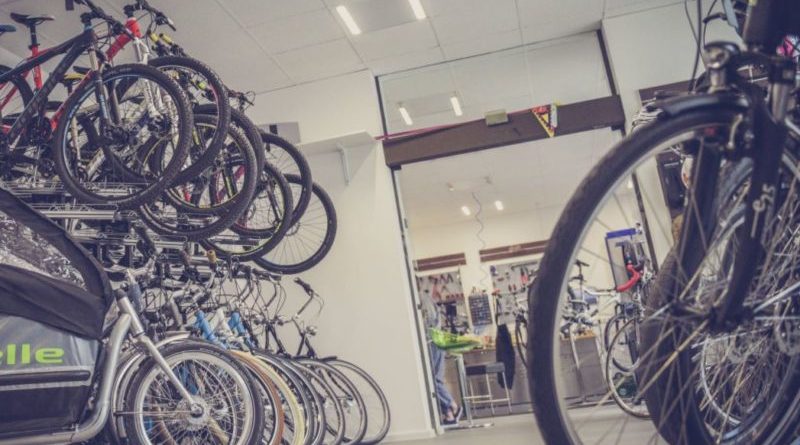Townley: The biggest threat to the independent bike shop is a reluctance to evolve

Words by Jay Townley, Gluskin Townley Group
This past week I was invited to deliver the breakfast keynote address at the CABDA Expo in Schaumburg, Illinois, a suburb of Chicago. The Chicago Area Bicycle Dealers Association (CABDA) has a long and rich history that once included a major American bicycle business trade show, which ended with the association’s bankruptcy in the early 1990s.
CABDA totally disappeared for over ten-years after the bankruptcy, and like a Phoenix rising the new regional trade show was announced in late 2014.[1] At the time there was a degree of skepticism and the nae-sayers were quick to opine that it wouldn’t last and certainly wasn’t going anywhere.
The February 14-15, 2018 edition was the fourth consecutive Midwest regional event, and the trade show had steadily grown so that it moved into the much larger Renaissance Schaumburg Convention Center Hotel.
At the 2018 Expo, the night before my keynote, an announcement was made that serious consideration was being given to other regional CABDA Expo’s on the East Coast, in Florida, in Texas and on the West Coast – in addition to the Midwest Expo.
Regional American bicycle business trade shows have long been on our list of future changes to the mainstream – and they might just be on the horizon in 2019.
CABDA Expo management chose “The Biggest Threats Facing IBDs’ as the title for the keynote, and I got up early the morning of the breakfast and sorted through my notes about the current state of the American bicycle business. I also thought about the journey our industry and business and the bike shop channel of trade has made over the last 50 to 60 years – which corresponds to the time I have worked in and observed the bicycle business.
A summary of 2017 starts with the report issued by the Bicycle Product Supplier Association (BPSA) stating that wholesale shipments from suppliers to bike shops of bicycle units had declined from 2.4 million units in 2016 to 2.3 units in 2017 and from a wholesale value of $1.146 billion in 2016 to $1.131 billion.
 These are slight decreases of 2.8 percent in bicycle unit’s year over year and 1.3 percent in wholesale dollars. The average wholesale value of a bicycle sold to a bike shop increased slightly, by $7.38, or by 1.5 percent from $484.48 in 2016 to $491.86 in 2017.
These are slight decreases of 2.8 percent in bicycle unit’s year over year and 1.3 percent in wholesale dollars. The average wholesale value of a bicycle sold to a bike shop increased slightly, by $7.38, or by 1.5 percent from $484.48 in 2016 to $491.86 in 2017.
On February 9th of this year NPD Leisure Trends Group (NPD LTG) issued a press release stating, among other things, that the Grand Total direct effect retail dollars representing everything sold at retail (except used bicycles) in 2017 over 2016 by all channels of trade in the U.S. bicycle business dropped to $5.9 billion from $6.1 billion. Again, a small decline representing a -3 percent drop year over year.
NPD LTG also said in the same press release that the IBD (bike shop) channel declined by 1 percent in direct effect retail dollars in 2017 from $3.1 billion to $3.0 billion, with an average unit value for bike shop retail of $746.84.
I explained that, while small, the declines reported by NPD LTG and BPSA represented a continuation of the flat to declining U.S. bicycle market trend that we have been tracking for the last decade.
There is no doubt the U.S. bicycle business is under pressure from the consumer market and there is also no doubt that consumers are now totally in charge of the market and the path-to-purchase for bicycles and related products.
Add to this market pressure the supply chain economics that first emerged around 2010 to 2011 that Walmart, for one, pick up on and did something about. What economists discovered is the landed cost of certain products and commodities would reach parity between those sourced in China and the same products and commodities sourced in the U.S.
Kent International, a supplier of bicycles to Walmart did its own economic study and took Walmart up on its Made in America initiative, and with the assistance of the state of South Carolina purchased and retrofitted a manufacturing facility on 50 acres.
This U.S. domestic bicycle manufacturing facility, called Bicycle Corporation of American (BCA) by it owner, is the first major production plant that effective this year manufactures bicycle frames, forks, wheels and related sub-assemblies from imported components operating in this country since the late 1990s.
Kent International invited about two dozen Chinese and Taiwanese bicycle component brands and manufacturers to visit the BCA plant in South Carolina after the 2016 Interbike Show and the state gave a presentation covering the incentives it can provide to Asian component manufactures who set-up shop to support the BCA plant.
All of this occurred before the current administration took office and was moving forward and before any of the current trade initiatives were put into play.
What the current economics of bicycle importing and the situation evolving around international trade has created is heightened uncertainty and risk for the U.S. bicycle business and bike shops.
With this said, the group I work with, Light Transportation Solution Specialists is advising clients and potential clients to immediately investigate bringing their product sourcing into the U.S. Our current situation analysis indicates that this is the least risk and is currently a win-win scenario, because even if the current international trade situation abates or totally goes away, the shifting economics of importing, including increasing raw material, component, labour and transportation costs will still result in some products, like bicycles having a landed cost from Asia equal to the landed cost for the same products made in the U.S.
Add to this the interest and influx of primarily European OEM component automobile brands in the electric bicycle business in the U.S, and the surge in self-service bicycle rental, also referred to as dockless bicycle ride share brands in the U.S. market.
European OEM component automobile brands like Bosch, who was in attendance as a displaying supplier at the 2018 CABDA Expo, are major suppliers of electric drive systems for ebikes. Bosch is also a $55 billion company, meaning it is by itself almost ten-times larger in revenue than the whole of the American bicycle business – and there is Continental, PON and a whole list of other European and Asian electric drive system OEMs who are circling around the U.S. bicycle business, listening and learning.
How these large OEM component automobile brands and the automobile companies themselves change the American bicycle business is not yet clear, but if they are serious about mobility and transportation, which from all appearances they are, the traditional mainstream bike business, including bike shops is going to have to consider reaching out, or at least adapting – because the automobile brands and companies aren’t going to wait around for us to figure it out.
The Self-service bicycle rental or dockless bicycle ride share brands represent another very recent entrant to the U.S. bicycle market – who don’t really care about the mainstream American bicycle business.
Chinese companies like Mobike and Ofo entered the U.S. market in 2017 and have quickly deployed to dozens of cities and have also entered European and other Asian markets. Both companies have only been in business three to four years and they are considered “high-tech” companies, according to Bloomberg.
Mobike has a market capitalisation around $1.8 billion and Ofo around $1.3 billion and both are in fourth or fifth rounds of investment from companies like Tencent, Alibaba, Amazon and Apple.
There are five or six Chinese dockless ride share companies and four or five U.S. brands, only one of which has been in business for more than two years and the rest are new start-ups.
All dockless rideshare brands operate through an App that consumers pay an annual fee to sign up for, although some are offering free sign-up – and all charge a nominal fee per mile ridden. The App unlocks the bicycle, and the rider signs in and leaves the bicycle at their destination – more often in a designated area. There are no docking stations or back room software.
These companies make their money on the FinTec or financial technology involved in the initial sign-up and the small fee per mile – and they are figuring out how to monetise the Big Data they are collecting.
Dockless rideshare is attractive to a city because it costs the municipality nothing – nada – not a thing! This is in contrast to the cost of bicycles, docking stations and back-room software and systems.
And here is the real pressure point. In the cities in China where dockless bicycle ride share has worked well and worked as intended – bicycle riding participation has increased – dramatically! However, bicycle sales dropped like a rock.
 There is no guarantee that dockless bicycle ride share will take off in the U.S. and it might pop like a bubble and go away – or it might grow exponentially and in a short time become a major factor in bicycle riding participation in the U.S. Meanwhile – dockless bicycle ride share is another pressure point, adding to the stress and risk!
There is no guarantee that dockless bicycle ride share will take off in the U.S. and it might pop like a bubble and go away – or it might grow exponentially and in a short time become a major factor in bicycle riding participation in the U.S. Meanwhile – dockless bicycle ride share is another pressure point, adding to the stress and risk!
If successful – dockless bicycle ride share could result in more butts on bikes, but the sales of fewer new bicycles. The good news for bike shops is the decline will probably be among mass merchants and lower priced bicycles, with the mid and upper end bicycle markets remaining relatively stable – but if the mainstream doesn’t reach out change the relevance of bicycles, there may be no real growth in what remains of the U.S. bicycle market.
With all of this said – I asked the audience if anyone remembered the Pogo comic strip? Pogo was a possum who lived in a swamp – and he was fond of saying:
“We Have Met the Enemy and He is Us!”
The biggest threats facing IBDs – are asymmetrical, and they aren’t the internet and they aren’t other bike shops and they aren’t what most bike shops think they are.
The biggest threats facing IBDs – are the mainstream bike shop channel of trade itself, and the unwillingness to adapt and reach out and both share and change.
Let’s start with the definition of a “bike shop.” The National Bicycle Dealers Association (NBDA) defines a bike shop as doing 50-percent of its revenue in the bike business, having a brick-n-mortar location and being open 12-months of the year.
We heard from bike shops in attendance that reported arguing with the NBDA for “years” to change the definition to include their business. What we are doing now is undercounting, but also drifting away from any real factual understanding of actually how many bike shops there are in the U.S.
[1] The current CABDA is more a trade show than a bike shop trade association, but it is not the purpose of this article to profile the current CABDA or document its history.



